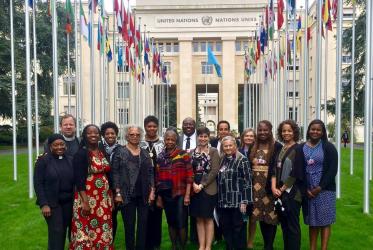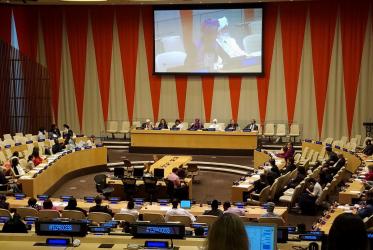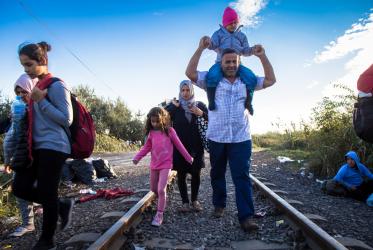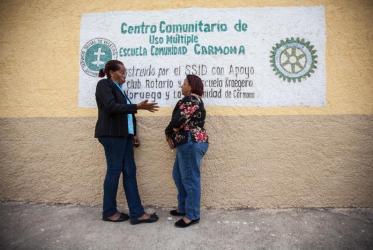Displaying 1 - 18 of 18
29 April 2019
Pan African Women of Faith issue fervent Call to Action
20 November 2018
“The work of truth-telling has to happen”
28 September 2017
WCC appeals for support, for all to stand #WithRefugees
31 August 2016
Religious leaders as agents of peace in the Americas
02 March 2016
Symposium focuses on religion, violence, extremism
04 February 2016
Church leaders address statelessness in Dominican Republic
03 February 2015
Indigenous faith leaders reflect on resilience and climate change
23 September 2014














